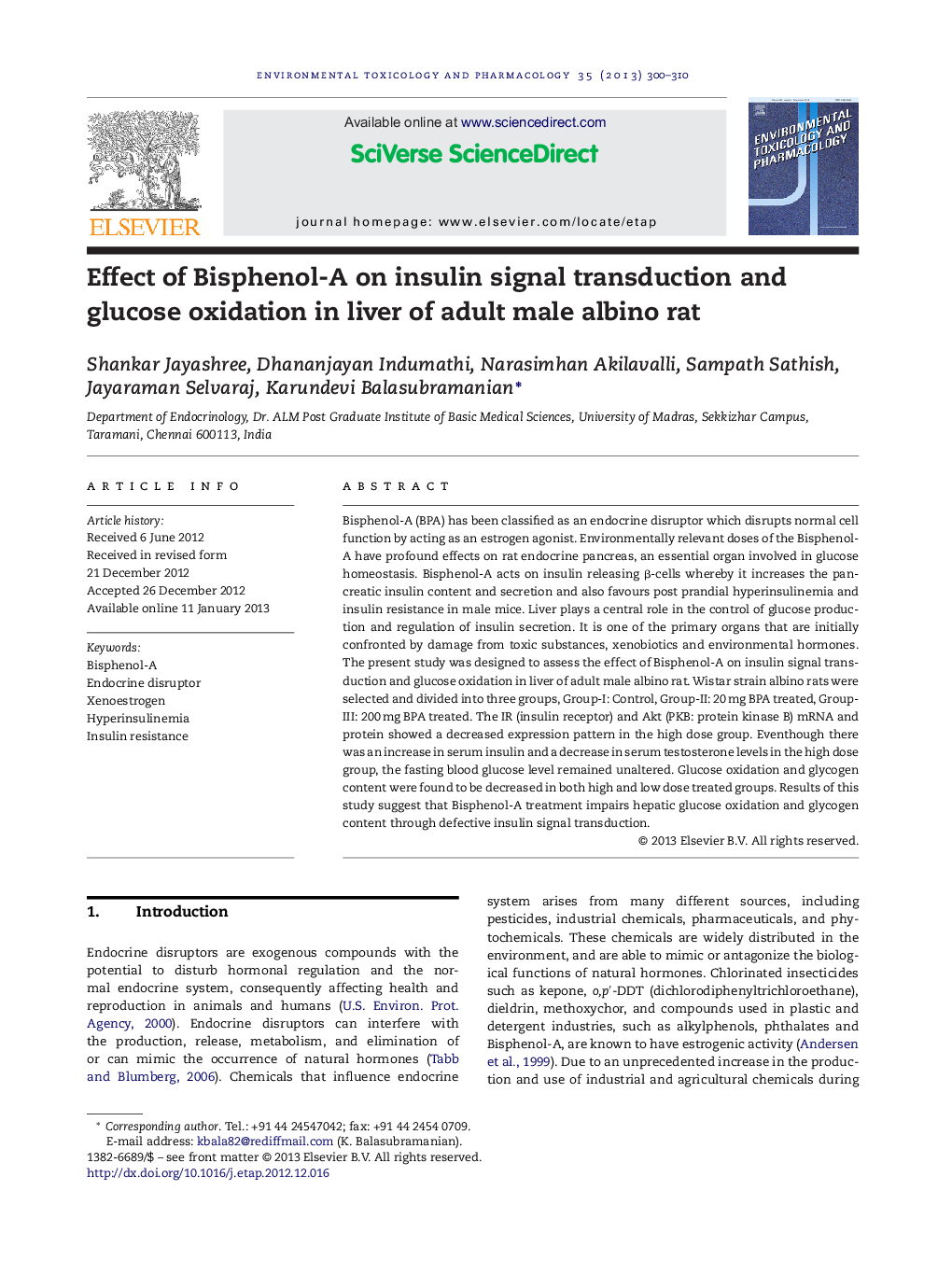| کد مقاله | کد نشریه | سال انتشار | مقاله انگلیسی | نسخه تمام متن |
|---|---|---|---|---|
| 2583237 | 1130684 | 2013 | 11 صفحه PDF | دانلود رایگان |

Bisphenol-A (BPA) has been classified as an endocrine disruptor which disrupts normal cell function by acting as an estrogen agonist. Environmentally relevant doses of the Bisphenol-A have profound effects on rat endocrine pancreas, an essential organ involved in glucose homeostasis. Bisphenol-A acts on insulin releasing β-cells whereby it increases the pancreatic insulin content and secretion and also favours post prandial hyperinsulinemia and insulin resistance in male mice. Liver plays a central role in the control of glucose production and regulation of insulin secretion. It is one of the primary organs that are initially confronted by damage from toxic substances, xenobiotics and environmental hormones. The present study was designed to assess the effect of Bisphenol-A on insulin signal transduction and glucose oxidation in liver of adult male albino rat. Wistar strain albino rats were selected and divided into three groups, Group-I: Control, Group-II: 20 mg BPA treated, Group-III: 200 mg BPA treated. The IR (insulin receptor) and Akt (PKB: protein kinase B) mRNA and protein showed a decreased expression pattern in the high dose group. Eventhough there was an increase in serum insulin and a decrease in serum testosterone levels in the high dose group, the fasting blood glucose level remained unaltered. Glucose oxidation and glycogen content were found to be decreased in both high and low dose treated groups. Results of this study suggest that Bisphenol-A treatment impairs hepatic glucose oxidation and glycogen content through defective insulin signal transduction.
► In our work, Bisphenol-A (BPA) treatment significantly decreased the glucose oxidation whereas the fasting blood glucose was unaffected, but decreased the glycogen concentration.
► BPA treatment resulted in hyperinsulinemia but decreased the serum testosterone.
► Levels of IR, Akt, and p-Akt(ser 473) proteins were impaired.
► BPA treatment significantly increased the GLUT2 mRNA as well as cytosolic and plasma membrane GLUT2 level.
► It is concluded that Bisphenol-A treatment impairs hepatic glucose oxidation through defective insulin signal transduction, but enhanced the expression of GLUT2.
Journal: Environmental Toxicology and Pharmacology - Volume 35, Issue 2, March 2013, Pages 300–310